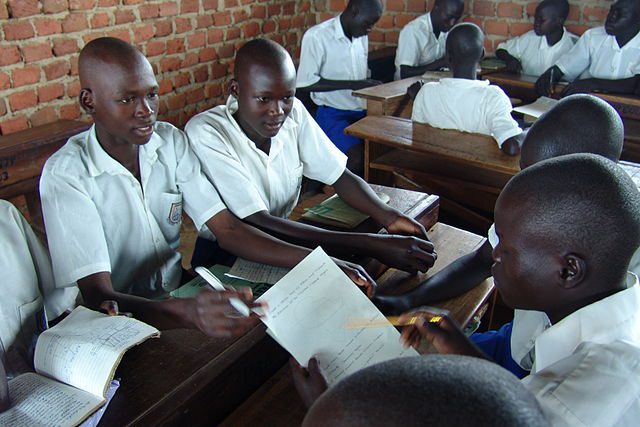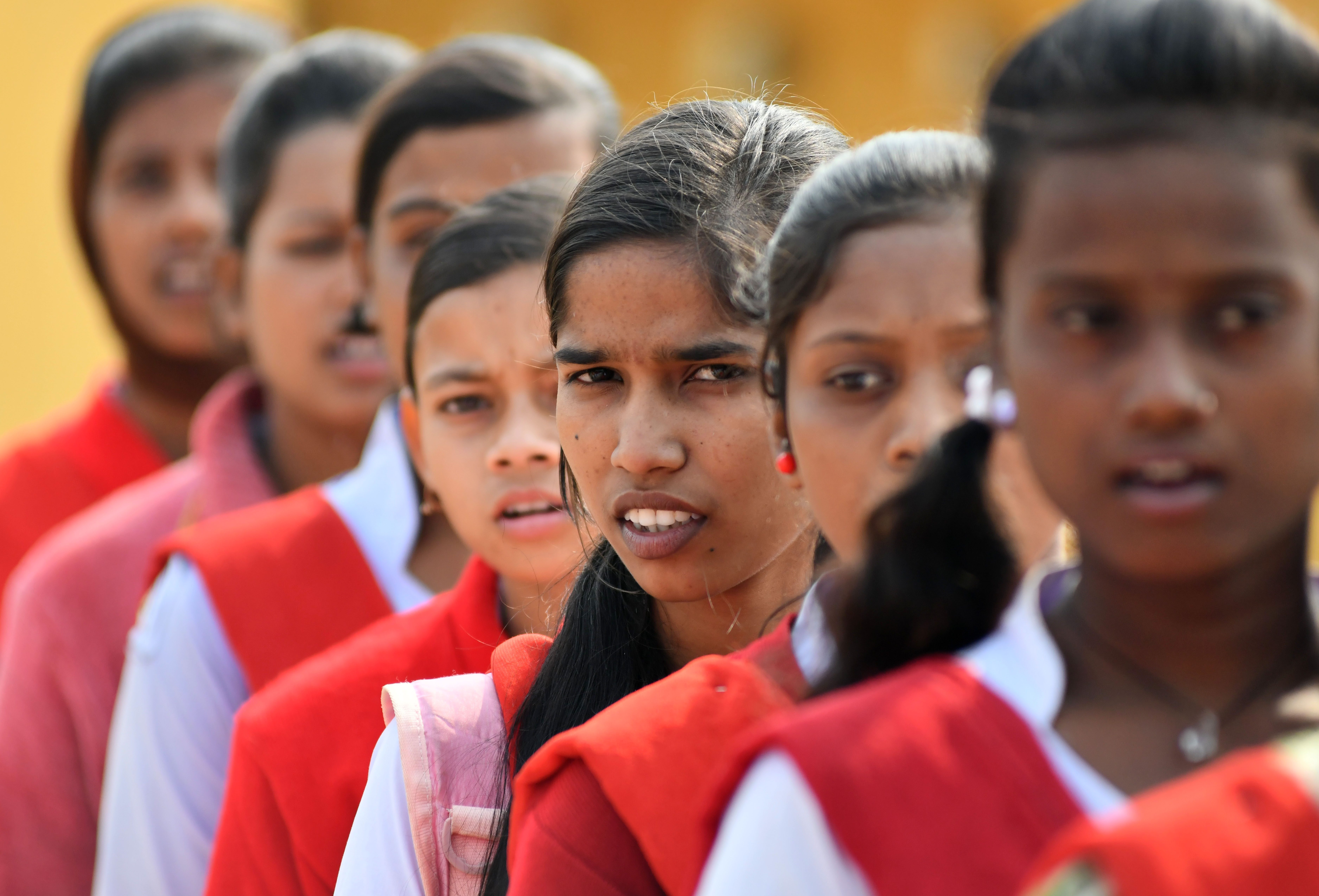This blog is written by Camila Pereira, CEO, Global School Leaders.
The launch of the 2024/5 Global Education Monitoring (GEM) Report on leadership in education is a big occasion for organisations like Global School Leaders (GSL). Over the past eight years, GSL has been dedicated to strengthening school leadership across the Global South, advocating for school leadership as a central pillar in improving student learning. This is why the GEM Report’s focus on this topic – with its credibility, depth, and influence – is especially exciting for us. Its central message is clear: school leadership matters.
Between 5-7 November 2024, GSL and the GEM Report team co-hosted the School Leadership Matters Summit, bringing together school leaders, policymakers, and civil society organisations from Latin America, Africa, and Asia to explore and unpack the report’s recommendations. Please visit the website to learn more and access recordings of all discussions.
As part of the “group of friends” that provided feedback and input to the GEM Report team throughout its development, here are four aspects of the report that we highlight:
1. Considering its documented impact, school leadership remains underrated
The 2024/5 GEM Report underscores the significant impact that effective school leadership can have on improving student learning, teacher practices, and overall school performance. School leaders are uniquely positioned to influence the quality of teaching and learning. However, their role is often under-supported across education systems worldwide, especially in low and middle-income countries. “In many countries, education leaders are often still only thought of as administrators or managers”, says the report.
The evidence presented reinforces what GSL has observed in our work across the Global South. Partnering with local organisations, we have already supported the training of 13,000 school leaders. Building evidence on effective school leadership from the Global South is a major endeavour in which GSL is deeply involved. As highlighted in our literature review: “Investing in school leadership to improve student learning is a cost-effective policy solution, yet it remains underutilized in many developing countries”.
2. Not all training is equal
The GEM Report offers valuable insights into the types of training currently available to school leaders. They emphasise four dimensions that are essential when it comes to effective leadership at the school level: set expectations, focus on learning, foster collaboration and develop people. Unfortunately, they go on to conclude: “A global review of school principal preparation and training programs suggests that barely half of them focus on any of these four dimensions – and just one-third focus on all four”.
GSL has long been committed to working with partners in countries like India, Kenya, Ghana, Brazil, Indonesia, Philippines and Malaysia, to contextualise leadership development programmes that meet the specific needs of each country. Based on a review of the literature on school leadership and the on-ground experience of our partners, we have identified six High Leverage Actions (HLAs) that can sustainably improve student outcomes across different cultural and policy contexts. We recommend that partners build their school leader professional development programmes around these six HLAs, which align closely with the four dimensions highlighted in the GEM Report:
- Co-create a supportive culture of high expectations
- Establish effective teaching practices
- Build teacher skills through observation and feedback
- Use data for continuous improvement
- Share leadership across the school
- Identify and disrupt inequitable patterns
We are committed to making these resources available to organisations engaged in training school leaders in the Global South and look forward to supporting partners who are working in this critical field.
3. Training leaders is essential, but systemic change is also needed
While training and developing school leaders is critical, the GEM Report makes it clear that training alone is not enough. The systems in which school leaders operate must also be transformed to enable them to perform effectively.
The GEM Report provides concrete recommendations for improving system conditions, such as selecting talented school leaders through inclusive recruitment processes, implementing formal certification procedures, and improving work conditions to increase retention rates and job satisfaction.
These recommendations align closely with GSL’s vision. Besides training school leaders directly, our local partners have also been engaged with municipal, state and federal governments. In Indonesia, for example, Inspirasi has worked with the national government to support the development of competency standards for school leaders. In Brazil, the Lemann Center of Sobral has been working with municipalities across the country to help them create their own policies for recruiting and developing school principals, based on best practices and robust evidence.
More recently, GSL took a step to take this advocacy work to a more regional level too. We supported the creation of a LATAM Hub that gathers organisations working with school leadership in the region. One of the hub’s strategic goals is to “Generate proposals to guide public policy and support organizations’ advocacy”. We are committed to expanding that effort across regions, to make sure that school leaders are supported by policies that enable them to lead effectively.
4. Advancing women in school leadership is urgent
In GSL’s recent Review of Research on Gender in School Leadership, we show that “Female school leaders account for only 26% of the overall proportion of school leaders in low-income countries”. And yet, the literature review also shows that “female school leaders are more likely to engage in leadership practices that benefit students, including creating stronger pedagogical and learning environments, effectively managing talent and non-people management practices, emphasizing instructional leadership, implementing strategies that promote teacher attendance, and engaging parents in discussions related to the behaviour and academic success of their children”. The GEM Report also emphasises this challenge of underrepresentation: “Some studies suggest women achieve better learning outcomes than men as principals. (…) While many women teach, far fewer lead schools. Only 11% of countries globally have measures in place to address gender diversity in principal recruitment.” It will be looking at this issue in greater depth in its gender edition due out early next year.
At GSL, through our gender-focused programmes, we are working to address several aspects of the gender-based challenges in school leadership through programmes in different countries. While our work with UNICEF Innocenti in Ghana is looking at the systemic barriers to women entering school leadership, our upcoming pilot for female school leaders from Asia, Africa and Latin America aims at offering professional development specifically targeted at challenges that women face in school leadership. Our Gender Equitable Schools Program (GESP) running in partnership with Alokit in Hyderabad, India, is testing a broader approach by embedding gender equity discussions in workshops on effective teaching practices, behaviour management strategies and supporting teachers’ professional development.
Seizing the moment for change
Since our founding in 2016, GSL has collaborated with partners across Asia, Africa, and Latin America, witnessing firsthand the transformative impact of effective school leadership. Over these years, we’ve seen the field grow, with more organisations making a difference on the ground and unprecedented opportunities to design and invest in school leadership.
The 2024/5 GEM Report marks a pivotal moment. With its clear and actionable recommendations, it presents a powerful agenda for education systems worldwide to amplify their focus on school leadership.
At Global School Leaders, we are dedicated to advancing these recommendations by continuing to support local partners and regional coalitions as they work to strengthen leadership capacity and drive meaningful change in education.






Very informative. I particularly agree with the third aspect that while training is essential, systematic change is also needed for better school leadership.